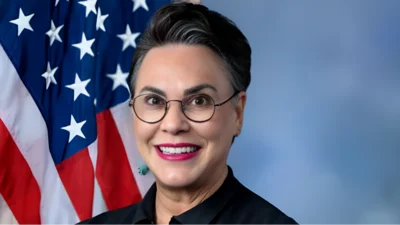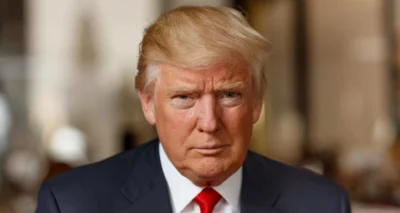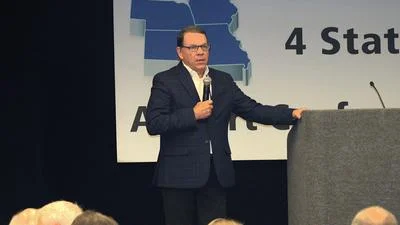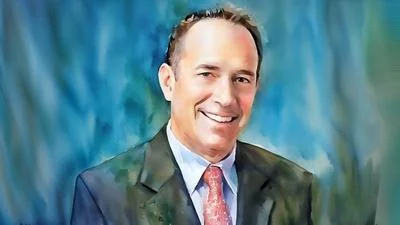This week, the Food and Drug Administration (FDA) briefed staff of the Subcommittee on Economic and Consumer Policy about the agency’s response to the potential health risks e-cigarettes pose to users affected by coronavirus.
“FDA needs to be a leader in a crisis, and on vaping it is not," Chairman Raja Krishnamoorthi said. “Studies indicate that smokers and vapers suffer worse outcomes from coronavirus. Instead of temporarily suspending sales of e-cigarettes, FDA officials say they are studying the issue. This is another instance of Americans suffering while we wait for FDA to do its job."
FDA’s action lags far behind other agencies like the National Institute on Drug Abuse (NIDA), which was quick to warn smokers and vapers that “because it attacks the lungs, the coronavirus that causes COVID-19 could be an especially serious threat to those who smoke tobacco … or who vape." It also warned that smokers and vapers “could find themselves at increased risk of COVID-19 and its more serious complications."
The FDA’s Director of the Center for Tobacco Products, Mitch Zeller, provided the following information during this week’s briefing:
* FDA has rejected the Subcommittee’s call to clear the market of all e-cigarettes during the coronavirus crisis despite e-cigarettes’ potential to create worse coronavirus outcomes. FDA relayed that it had not even discussed this option. FDA is still at stage one: reviewing available literature and studies to determine whether vaping is a risk factor for coronavirus. FDA would not even commit to temporarily withholding, during the duration of this crisis, approvals of Premarket Tobacco Product Applications e-cigarette companies need to submit to permanently stay on the market. That means that FDA may grant approval to sell e-cigarettes before it knows if they exacerbate coronavirus problems.
* FDA suspended enforcement of its recently-enacted partial ban of flavored e-cigarettes. On Sept. 11, 2019, the President announced that FDA would clear the market of all flavored e-cigarettes, including menthol. After a lengthy delay, FDA finalized a watered-down, partial flavor ban that went into effect on February 6, 2020. FDA’s main method of enforcing the partial flavor ban was conducting physical site visits of retailers. Between February 6 and mid-March, FDA conducted approximately 2,300 site visits. According to Director Zeller, “warning letters have been sent to the first 40 of the retailers that were still selling those products, and we still have many warning letters in the queue from those inspections that we are processing and that will also go out." Despite the high volume of illegal activity detected by the site visits, FDA stopped “all physical inspections and compliance checks in mid-March." Retailers like gas stations and convenience stores are still open and selling e-cigarettes. Therefore, FDA should still be fulfilling its duty to enforce the partial flavor ban, especially because it only went into effect in February and FDA discovered that it was being frequently violated.
* FDA may have overstated its need to delay a court order requiring FDA to accept Premarket Tobacco Product Applications (PMTA) from e-cigarette makers. The Federal District Court in Maryland ordered FDA to accept PMTA applications by May 12, 2020. On March 30, 2020, FDA asked the court to delay that order by four months. In its filing, FDA indicated that it would lack the capacity to accept PMTAs by May 12 because, “as a result of the outbreak, some employees from the FDA’s Center for Tobacco Products (CTP) have been deployed to work for the U.S. Public Health Service, including many within one of the divisions of CTP’s Office of Science, which is responsible for reviewing premarket applications." During the briefing FDA’s staffing situation seemed less dire. CTP’s Office of Science is large: it has about 350 full-time employees. According to Director Zeller, “no more than a couple of dozen" have been deployed to the Public Health Service, and “some have already returned." He also indicated that FDA is conducting “aggressive hiring" to fill any gaps.
On April 1, 2020, Chairman Krishnamoorthi wrote a letter to FDA, calling on it to clear the market of all e-cigarettes for the duration of the coronavirus pandemic, due to early indications that vaping presents serious health risks to coronavirus patients. At a time when hospitals and health care providers are overwhelmed, FDA should do everything it can to reduce unnecessary risks that add stress to the system.









